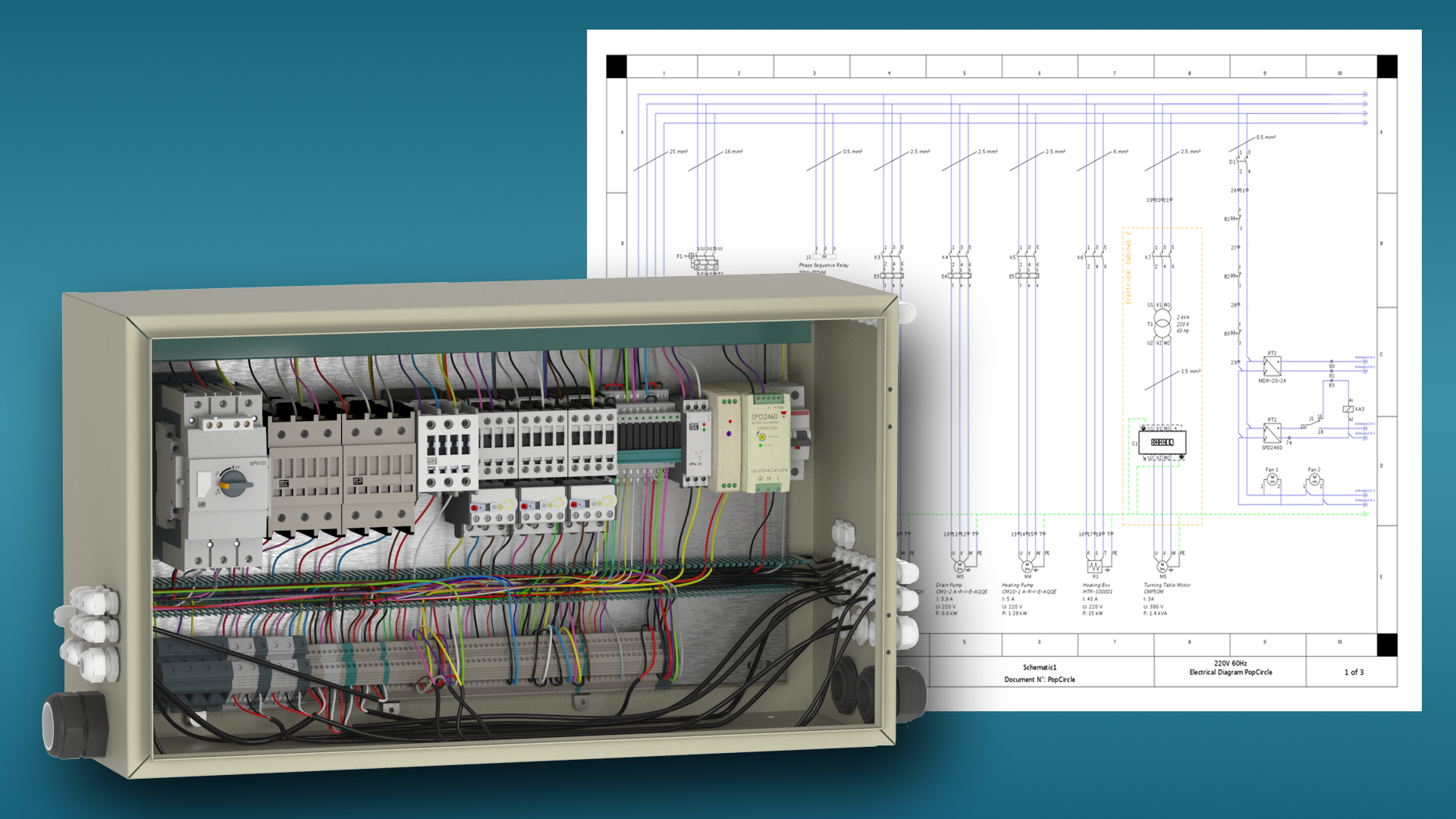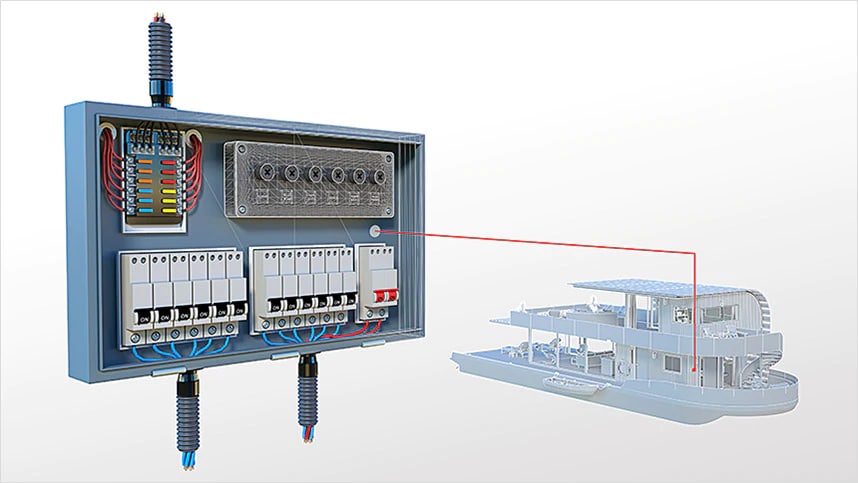Specialist Electrical Design Providers for Safe and Reliable Systems
The duty of professional electric design services is significantly vital in ensuring the security and performance of modern systems that create the foundation of building framework. As we take a look at these elements, the influence on future developments in electrical systems warrants mindful consideration.
Importance of Electric Design
One can not take too lightly the relevance of electric design in any kind of building and construction or renovation job. Efficient electric design acts as the backbone of a structure's framework, making certain the efficient and safe circulation of electric power. It is crucial for fulfilling both regulatory and useful needs, thereby decreasing the danger of risks such as electric fires and equipment failures. A well-structured electric design contributes to the general power efficiency of a facility, which can lead to significant cost financial savings with time.
In addition, it accommodates the expanding demand for advanced innovations and smart systems that boost customer experience and operational efficiency - electrical load calculation. By incorporating energy-efficient illumination, trusted source of power, and ideal circuit layouts, electric design helps with the seamless operation of home appliances and machinery necessary to everyday activities
Furthermore, extensive electric design thinks about future scalability, permitting simple upgrades and alterations as modern technology evolves. This forward-thinking strategy not just maximizes the current system however likewise secures the financial investment made in the framework. In significance, careful attention to electric design is vital for accomplishing an effective, sustainable, and secure atmosphere in any kind of construction or renovation undertaking.
Key Parts of Design Solutions
A thorough electrical design service includes several essential components that make certain the effective and trustworthy application of electrical systems. At the foundation is the assessment of task needs, which consists of understanding customer requirements, regulative criteria, and ecological factors to consider. This preliminary phase is crucial for customizing the design to fulfill particular demands.
Following, accurate lots calculations are executed to determine the electrical needs of the system. This entails evaluating the power demands of all linked devices and making sure that the design can accommodate potential future expansions.
The selection of proper materials and tools is an additional necessary component. This includes picking premium components that abide by sector requirements and fit the project's budgetary restrictions.
Furthermore, detailed schematic representations and designs are created to envision the system's style, helping with clear interaction amongst stakeholders.
Last but not least, a detailed evaluation and recognition procedure is necessary to guarantee that the design meets safety and security standards and operational performance prior to application. By incorporating these parts, electrical design solutions create durable systems that function properly and safely within their designated atmospheres.
Advantages of Expert Competence
Involving professional competence in electric design services brings significant advantages that boost task end results. Firstly, specialists have thorough expertise of the most up to date approaches, technologies, and devices, making certain that layouts are not just ingenious but effective and additionally functional. Their experience permits the identification of possible issues early in the design procedure, minimizing pricey revisions and hold-ups.
Moreover, professional electric designers are skilled at maximizing system performance while adhering to finest methods (industrial electrical design). They utilize advanced simulation and modeling techniques to anticipate system behavior under various conditions, leading to even more reliable and reliable designs. This optimization translates to energy savings and improved functional effectiveness, which are vital in today's sustainability-focused atmosphere
Cooperation is one more vital advantage; skilled developers function very closely with other experts-- designers, designers, and professionals-- to ensure that all aspects of the job straighten flawlessly. This interdisciplinary method cultivates efficient interaction and ultimately results in a natural and useful electric system.
Regulatory Compliance Factors To Consider

Specialists in electrical design should have a thorough understanding of these guidelines, making sure that all elements satisfy needed security and performance requirements. Regular updates and modifications to policies demand recurring education and learning and awareness within the field. In addition, non-compliance can cause costly hold-ups, redesigns, and legal consequences, detrimentally impacting task timelines and budget plans.
Including compliance factors to consider from the start of a project enables designers to identify possible issues early, helping with smoother authorizations next and assessments. Involving skilled electric design solutions ensures that all regulative standards are satisfied, thereby reducing threats and promoting a much safer setting for both operators and users. Inevitably, the concentrate on regulatory compliance promotes count on and reliability, vital components in the effective shipment of electrical design tasks.
Future Patterns in Electric Design

One more arising fad is the emphasis on renewable energy resources. As the demand for lasting solutions expands, electric design will progressively integrate solar, wind, and energy storage space systems. This shift not only lines up with worldwide sustainability goals however also improves power strength.
Furthermore, the rise of electrical vehicles (EVs) requires a reconsidering of electric facilities, triggering layouts that suit EV billing stations in business and residential areas. In addition, developments in energy-efficient elements and products will certainly continue to play a crucial role in decreasing power usage and reducing ecological effect.
Lastly, the fostering of digital twins in electrical design permits enhanced simulation and modeling, allowing engineers to visualize and enhance systems before application. These fads jointly show a transformative shift towards much more intelligent, sustainable, and efficient electrical design methods.
Final Thought
To conclude, expert electrical design solutions play a critical function in ensuring the safety and performance of structure infrastructure. By focusing on detailed analyses, accurate load estimations, and making use of premium products, these services facilitate my explanation conformity with regulatory standards and alleviate threats connected with electric failures. In addition, the combination of sophisticated technologies and lasting practices improves system performance and integrity, ultimately contributing to a more energy-efficient and durable developed environment.
The duty of specialist electrical design services is significantly paramount in top article guaranteeing the security and efficiency of modern-day systems that develop the foundation of structure infrastructure. Efficient electric design serves as the backbone of a structure's infrastructure, ensuring the secure and reliable distribution of electrical power.A comprehensive electrical design solution incorporates numerous crucial components that guarantee the trusted and efficient application of electric systems. Electrical systems have to comply with regional, state, and national codes, including the National Electrical Code (NEC) in the United States, which sets the requirement for secure electric design.
As the need for sustainable solutions expands, electric design will increasingly incorporate solar, wind, and energy storage space systems.